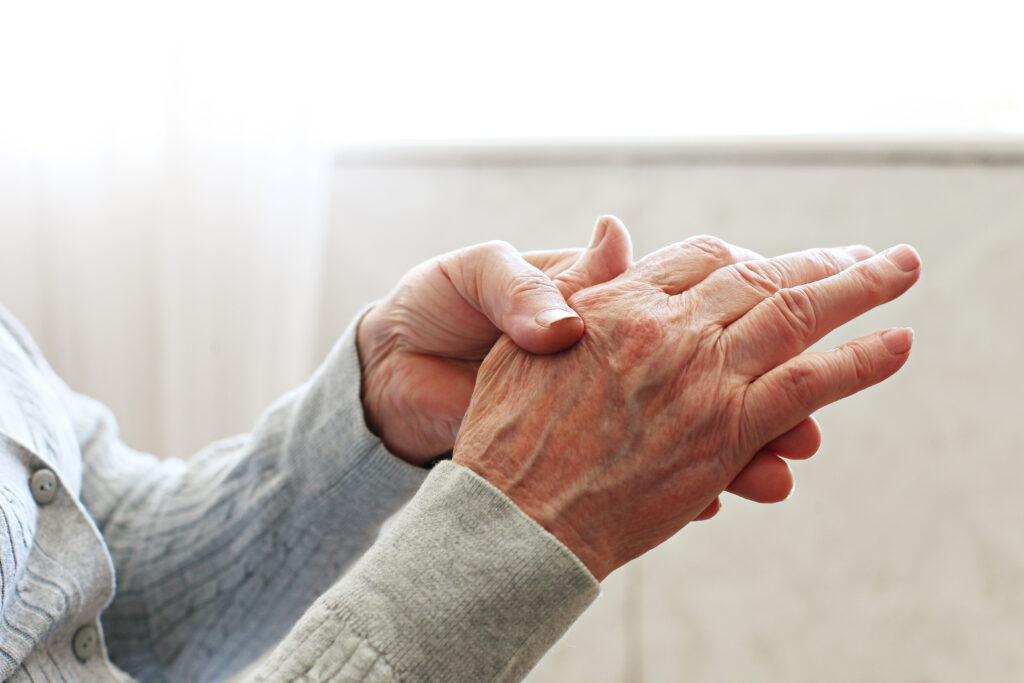
What is osteoarthritis?
Osteoarthritis (OA) is the most common type of arthritis in the UK. It is a degenerative joint condition that causes the cartilage in joints to become thinner, which can lead to pain, stiffness, and reduced movement. It can affect any joint but is most common in the knees, hips, hands, and spine.
Symptoms
- Joint pain and stiffness
- Swelling or tenderness
- A grating or grinding sensation (crepitus)
- Reduced range of motion
- Joint instability or weakness
- Symptoms may worsen with activity and improve with rest
Diagnosis
Osteoarthritis is usually diagnosed based on:
- Your symptoms and medical history
- Physical examination of the affected joint(s)
- X-rays may be used to confirm joint changes
- Blood tests are not typically needed but may be done to rule out other types of arthritis
Causes and risk factors
- Age (more common in people over 45 years old)
- Joint injury or overuse
- Being overweight
- Family history of osteoarthritis
- Other joint conditions (e.g. rheumatoid arthritis, gout)
Self-care and management
1. Exercise
- Regular, low-impact exercise (e.g. walking, swimming, cycling)
- Strengthening exercises to support joints
- Stretching to maintain flexibility
2. Weight management
- Losing excess weight reduces strain on weight-bearing joints
3. Pain relief
- Paracetamol or ibuprofen (as advised)
- Topical creams or gels. Consult your local pharmacist
- Heat or cold packs for symptom relief
4. Joint protection
- Use supportive footwear
- Modify activities to reduce joint strain
- Use walking aids or braces if needed
Medical treatments
- MSK Rehabilitation: Tailored exercise programs to improve your joint strength, flexibility and overall MSK health can be developed with you with the aim of improving your day-to-day function
- Steroid Injections: Steroid injections are sometimes used to manage the inflammation associated with osteoarthritis.
This is an anti-inflammatory delivered directly to the joint and treats the symptoms of osteoarthritis but does not resolve the joint cartilage changes.
- Some people see good benefit from injections, however the more advanced the changes are in the joint, the less likely you are to see benefit
- Surgery: joint replacement may be considered if symptoms are severe and other treatments haven’t helped
Outlook
Osteoarthritis is a long-term condition, but symptoms can often be managed effectively with lifestyle changes, exercise, and appropriate treatment. Many people continue to lead active, fulfilling lives.